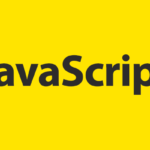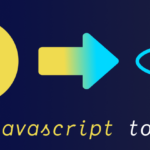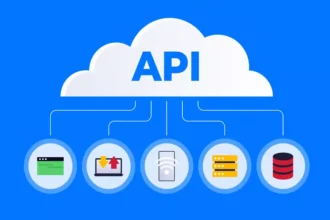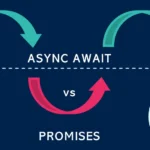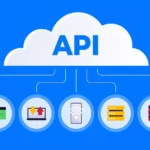
In the Nigerian tech space, many software developers are striving to land high-paying international remote jobs. These jobs not only come with juicy paychecks but also provide opportunities to work with global teams and gain exposure to cutting-edge technologies. But let’s face it, breaking into this space can feel like a mountain climb. The good news? It’s absolutely possible, and I’m here to guide you step-by-step.
Let’s explore actionable strategies to help you secure that golden remote job within 30 days, along with some secrets that will make you stand out globally.
Why Remote Jobs Are the Dream for Nigerian Developers
Remote jobs come with numerous benefits: high salaries (often paid in dollars), flexible working hours, and opportunities to grow your skills in a global context. Plus, you get to sidestep some of the challenges in the local job market. But while the opportunities are out there, getting hired for these roles requires strategic preparation and execution.
The Core Strategies to Land an International Remote Job
1. Understand Your Market Value
Before you start applying, take time to evaluate your skills and determine where you fit in the global market. Companies abroad look for specialists who can deliver real value. Ask yourself:
- What skills do I bring to the table?
- Are these skills in demand internationally?
In-demand skills include:
- Frontend Development: React.js, Angular, Vue.js.
- Backend Development: Node.js, Python (Django, Flask), Ruby on Rails.
- Full-Stack Development: A combination of the above.
- Cloud/DevOps: AWS, Azure, Docker, Kubernetes.
2. Polish Your Online Presence
Your online profiles are your first impression. Here’s how to make them shine:
- LinkedIn:
- Use a professional profile picture.
- Craft a headline that highlights your skills (e.g., “Full-Stack Developer | React & Node.js | Open for Remote Opportunities”).
- Write a summary that showcases your expertise and achievements.
- Regularly post about your projects, insights, and tech-related experiences.
- GitHub:
- Keep your repositories clean and organized.
- Include detailed README files for each project.
- Showcase projects that demonstrate your ability to solve real-world problems.
- Portfolio:
- Create a simple, professional website to display your skills, projects, and contact information.
- Use platforms like Netlify or Vercel to host your portfolio for free.
3. Hunt for Remote Jobs on the Right Platforms
Not all job boards are created equal. Focus on platforms specifically tailored for remote jobs:
Search for keywords like “Remote React Developer” or “Backend Engineer” and apply consistently.
4. Craft Tailored Applications
Every application should feel personalized to the job description. Here’s how:
- Tailor your CV to highlight relevant skills and experience.
- Write a cover letter that shows you understand the company’s challenges and how you can solve them.
- Include a link to your portfolio and GitHub.
5. Network Like a Pro
Networking can open doors faster than random applications:
- Connect with recruiters, developers, and hiring managers on LinkedIn.
- Join tech communities on Slack, Discord, and Twitter.
- Cold email potential employers with a short but compelling introduction about your skills and interest.
6. Prepare for Interviews
Be ready for technical interviews by:
- Practicing coding challenges on platforms like LeetCode and HackerRank.
- Reviewing common system design questions for backend roles.
- Recording mock interviews to refine your responses.
The Golden Hack: Build Visibility as an Authority
To truly stand out, position yourself as an expert in your field:
- Share Knowledge Publicly:
- Post consistently on LinkedIn, Dev.to, or Hashnode about your coding journey, tips, and projects.
- Write blog posts like “How I Built a Scalable REST API in Node.js” or “Debugging Like a Pro: My Top Python Tricks.”
- Contribute to Open Source:
- Pick backend or frontend projects on GitHub and start contributing.
- Share your contributions with your network to build credibility.
- Loom Video Applications:
- Create a short video introducing yourself and your skills. Share this along with your applications to leave a lasting impression.
Tackling the Frontend vs. Backend Perception
There’s a common belief that frontend developers have an edge over backend developers in securing remote jobs. While frontend work is more visual and often easier to outsource, backend developers are equally in demand, especially those skilled in building scalable systems and APIs.
For Backend Developers:
- Highlight your experience in security and scalability.
- Learn complementary skills like cloud architecture (AWS, Docker, Kubernetes).
- Emphasize your ability to collaborate with frontend teams effectively.
A 30-Day Action Plan
Week 1:
- Polish your LinkedIn, GitHub, and portfolio.
- Start engaging on LinkedIn with posts and comments.
Week 2:
- Apply to at least 3 jobs daily on remote job boards.
- Reach out to recruiters with tailored messages.
Week 3:
- Contribute to open-source projects.
- Build and deploy a standout portfolio project.
Week 4:
- Focus on interview preparation.
- Follow up on your applications and refine your approach based on feedback.
Final Thoughts
Securing a high-paying remote job from Nigeria is not only possible but achievable with the right strategies. By positioning yourself as a skilled and reliable developer, optimizing your online presence, and networking effectively, you can break into the global market.
The key is consistency, persistence, and a willingness to adapt. Share this plan with your fellow developers, and together, you can achieve great things. Good luck, and remember—the world is watching your talent. Go get that remote job!





